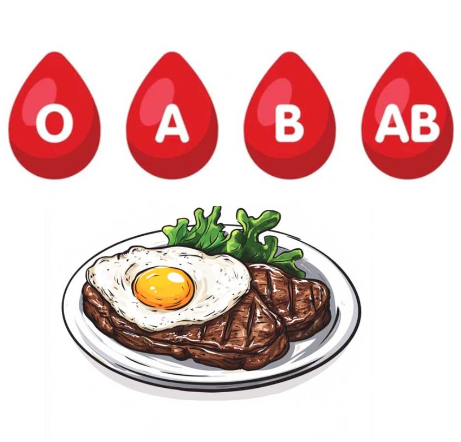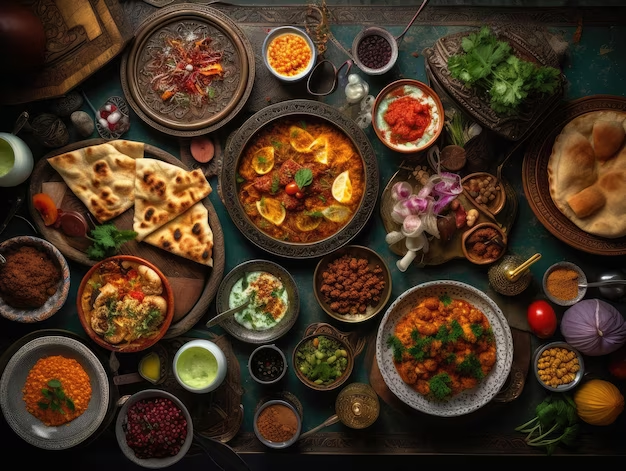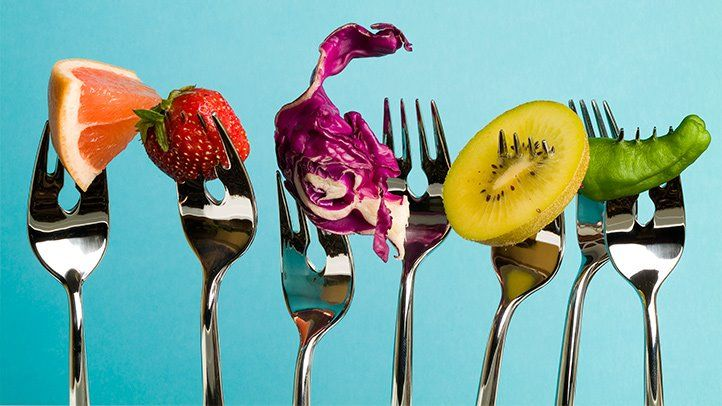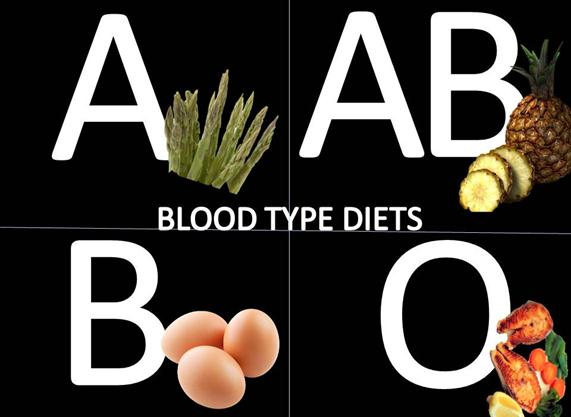Ever wondered if your blood type could determine what foods are best for you? According to proponents of the Blood Type Diet, the answer is a resounding yes. This diet, based on your blood type (A, B, AB, or O), suggests that eating specific foods can improve your health, boost your metabolism, and even help prevent diseases. But how credible is this idea? Let’s dive into the theory, recommendations, and the science behind it all.
What Is the Blood Type Diet?

The Blood Type Diet is based on the idea that your blood type influences how your body reacts to various foods. The theory, popularized by Dr. Peter J. D’Adamo in his 1996 book Eat Right 4 Your Type, suggests that the antigens present or absent in your blood interact with certain foods in ways that impact your digestion and metabolism. According to this concept, your blood type reflects the genetic traits of your ancestors, determining the optimal diet for your body.
Understanding the Different Blood Types
Before we delve into the specific foods for each blood type, it’s important to understand what blood types actually are. Your blood type is classified by the presence or absence of A and B antigens on the surface of your red blood cells. Here’s a breakdown:
- Blood Type A: Has A antigens and lacks B antigens.
- Blood Type B: Has B antigens and lacks A antigens.
- Blood Type AB: Possesses both A and B antigens (universal recipient).
- Blood Type O: Lacks both A and B antigens (universal donor).
This classification not only plays a role in blood transfusions but also forms the foundation of the Blood Type Diet’s nutritional guidelines.
The Diet for Each Blood Type: What Should You Eat?
Blood Type A: Go Vegetarian
According to the Blood Type Diet, individuals with blood type A should primarily follow a vegetarian or plant-based diet. The theory suggests that type A people have lower stomach acid and a sensitive immune system, which makes them better suited for digesting plant-based foods rather than animal proteins.
- Recommended Foods: Vegetables, fruits, tofu, seafood, grains, beans, and legumes.
- Avoid: Red meat, dairy, kidney beans, lima beans, and most wheat products.
If you’re a type A, sticking to this diet is believed to reduce stress on your immune and digestive systems, promoting overall wellness.
Blood Type B: Embrace Diversity

People with blood type B are thought to have a more balanced immune system and digestive tract, making them able to handle a wider variety of foods. The Blood Type Diet encourages those with type B to eat a balanced diet, with a focus on boosting metabolic function and maintaining gut health.
- Recommended Foods: Green vegetables, eggs, certain meats like lamb and goat, low-fat dairy, and specific grains.
- Avoid: Chicken, corn, wheat, lentils, peanuts, and tomatoes.
With this broader dietary flexibility, type B individuals may find it easier to maintain a balanced and satisfying diet.
Blood Type AB: A Little Bit of Everything
As the rarest blood type, AB has characteristics of both A and B, so the diet for type AB individuals is a combination of the recommendations for these two groups.
- Recommended Foods: Tofu, seafood, dairy, green vegetables, quinoa, and brown rice.
- Avoid: Chicken, corn, buckwheat, and kidney beans.
This diet aims to support the unique immune and digestive needs of those with both A and B antigens.
Blood Type O: Bring on the Protein

Blood type O is believed to be the oldest blood type in evolutionary history. As such, type O individuals are thought to benefit from a diet rich in animal proteins, much like their hunter-gatherer ancestors.
- Recommended Foods: Meats, vegetables, fish, and fruits.
- Avoid: Grains, legumes, dairy products, and certain fruits like melons and oranges.
Since type O individuals are said to have higher levels of stomach acid, they can supposedly digest animal proteins more efficiently than other blood types.
The Science Behind the Blood Type Diet: Fact or Fiction?
Despite its widespread popularity, the Blood Type Diet remains controversial among nutritionists and medical experts. While Dr. D’Adamo’s theory is based on the idea that specific proteins (lectins) in food react with blood antigens, affecting digestion and overall health, the scientific evidence supporting this claim is sparse.
Numerous studies have tried to validate the Blood Type Diet, but the results have been inconclusive. Many researchers argue that there is no solid evidence linking blood type to how the body processes food. Moreover, some studies suggest that the perceived benefits of the Blood Type Diet may be more related to the emphasis on whole, unprocessed foods rather than the blood type-specific recommendations.
Potential Benefits of the Blood Type Diet

Even though the scientific backing is weak, many followers of the Blood Type Diet report feeling healthier. This could be because the diet naturally encourages people to avoid processed foods, unhealthy fats, and excessive sugars, which are problematic for everyone, regardless of blood type. Some potential benefits include:
- Improved digestion
- Better weight management
- Increased energy levels
However, whether these benefits are directly related to blood type remains a subject of debate.
Criticisms and Controversies
One of the primary criticisms of the Blood Type Diet is its lack of flexibility. Some experts argue that such a restrictive approach can lead to nutritional imbalances if not properly planned. For instance, individuals following the type O diet, which restricts grains and legumes, might miss out on vital nutrients like fiber and certain vitamins.
Moreover, some researchers question the fundamental premise of the Blood Type Diet. A study published in 2014 in PLOS ONE found no evidence to support the idea that blood type affects the health benefits of different foods. Critics often view the diet as another fad lacking substantial scientific credibility.
Should You Try the Blood Type Diet?

Deciding whether to adopt the Blood Type Diet ultimately depends on your health goals and personal preferences. While many people report positive outcomes, the lack of strong scientific backing means it’s not a one-size-fits-all solution. If you’re considering this diet, it’s a good idea to consult with a healthcare provider or a registered dietitian to ensure that you’re meeting all your nutritional needs.
Conclusion: Is Eating for Your Blood Type Worth It?
The Blood Type Diet has captured the imagination of many, offering a unique approach to nutrition based on your blood type. While it may offer some health benefits—particularly through its emphasis on whole, unprocessed foods—it’s essential to remember that the scientific support for this diet is still shaky. For now, the most reliable approach to eating healthy remains a balanced, varied diet tailored to your individual needs, not just your blood type.


